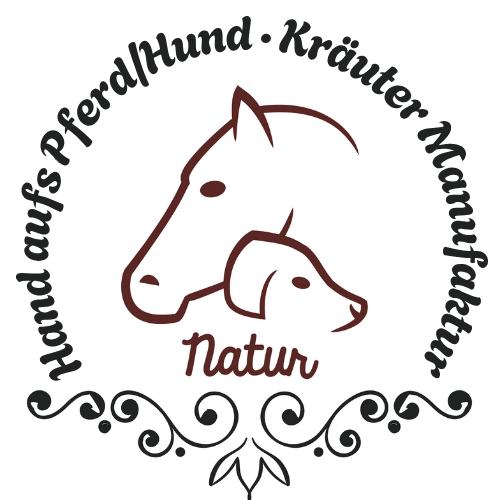
Vomiting in dogs - What helps
Vomiting in dogs: causes, treatment and prevention
Vomiting in dogs can be a harmless symptom, but it can also be a sign of a serious condition. As a responsible dog owner, it's important to understand the possible causes, know appropriate treatment strategies, and take preventative measures.
What is vomiting in dogs?
Vomiting is the process by which stomach contents are expelled through the mouth. This usually occurs with a visible contraction of the abdomen. It is to be distinguished from regurgitation, in which food is regurgitated undigested and without abdominal contraction.
Causes of vomiting in dogs
Vomiting in dogs can have many causes. It's important to distinguish between one-time and repeated vomiting. Here are some detailed explanations of possible causes of vomiting:
Feed-related reasons
- Overeating : Dogs that eat too much too quickly may vomit due to the over-distension of the stomach.
- Change of diet : A sudden change of food can irritate the gastrointestinal tract, as it has to get used to the new composition.
- Food intolerances : Some dogs are sensitive to certain foods or additives, which can lead to vomiting.
- Bad food : Spoiled or contaminated food can cause an upset stomach.
Gastrointestinal disorders
- Foreign body : A swallowed object can block or irritate the gastrointestinal tract.
- Infections : Bacterial or viral infections can cause inflammation in the stomach and intestines.
- Parasites : Worms or other parasites in the digestive tract can cause nausea and vomiting.
- Inflammatory Intestinal disease : Chronic inflammation of the intestinal mucosa can cause vomiting.
Toxins and poisons
- Poisoning : The ingestion of toxins, such as household cleaners, pesticides or poisonous plants, can lead to severe vomiting.
Diseases of other organ systems
- Kidney failure : The accumulation of toxins in the blood due to kidney problems can cause nausea.
- Liver disease : Liver problems can also lead to the accumulation of toxins that cause stomach upset and vomiting.
- Pancreatitis : Inflammation of the pancreas often leads to severe abdominal pain and vomiting.
- Hormonal disorders : For example, an overactive thyroid could promote vomiting.
Medications and therapies
- Drug side effects : Many medications can cause vomiting as a side effect.
Neurological causes
- Traumatic brain injury : An injury to the head can cause nausea and vomiting.
- Vestibular syndrome : Disorders of the balance organ can contribute to dizziness and vomiting.
Psychological reasons
- Stress and anxiety : Psychological stress or anxiety can trigger psychogenic vomiting in dogs.
Allergic reactions
- Food allergies : Some dogs may have allergic reactions to certain ingredients in their food, which may cause vomiting.
- Environmental allergens : Allergies to pollen, mold, or other environmental allergens can also cause gastrointestinal problems.
Cancer
- Tumors : Cancers of the gastrointestinal tract or other internal tumors may exert pressure or cause vomiting.
pregnancy
- Pregnancy : As with humans, dogs can also experience morning sickness.
Post-operative effects
- Anesthesia : Many animals vomit after surgical procedures due to anesthesia.
Infections :
- Viruses (e.g. parvovirus), bacteria, parasites
When a dog vomits, it is important to look for other symptoms. Lethargy, Diarrhea , pain, a swollen abdomen or blood in the vomit are warning signs that require an urgent visit to the veterinarian.
Treatment aims to address the cause of vomiting, hydrate the dog, and antiemetics (anti-vomiting medications) may be considered to control vomiting and provide relief to the dog.
Understanding the possible causes of vomiting can help manage and prevent it. Regular health checkups and a proper diet are essential for your dog's health and well-being.
Treatment of vomiting
Treatment of vomiting should always be based on the underlying cause:
Veterinary care : If vomiting persists or other symptoms such as lethargy, diarrhea, or pain occur, seek immediate veterinary advice.
Dietary management : A temporary period of fasting followed by a bland diet (e.g., boiled chicken and rice) can soothe the gastrointestinal tract.
Medication : If necessary, the veterinarian may prescribe antiemetics or prokinetics to control vomiting.
Fluid therapy : In case of dehydration, subcutaneous or intravenous fluid therapy may be necessary.
Intestinal herbs for dogs – Natural support for balanced digestion
Preventive for more balance in the feeding plan
A balanced diet forms the foundation for your dog's overall well-being – especially with regard to digestion. In addition to their daily diet, our "Sunrise" intestinal herbs can provide nutritional support – specially formulated for dogs with sensitive gastrointestinal tracts.
The mixture contains proven plant ingredients such as:
-
Peppermint – traditionally used to support digestive function.
-
Milk thistle – long known in connection with liver and digestive food.
-
Caraway – traditionally used in feeding concepts related to gastrointestinal function.
-
Yarrow – traditionally used in the area of digestion and feeding balance.
-
Dandelion root – valued in traditional feeding as a supplement for vital digestion.
How can intestinal herbs contribute to feeding?
Our intestinal herbs provide valuable secondary plant substances and bitter compounds that have proven effective in traditional animal nutrition. They can be a valuable addition to your diet if you place particular importance on digestive balance—especially during feed changes or when your pet has sensitive digestion.
Important to know
Occasional vomiting in dogs can have a variety of causes—from harmless triggers to serious health challenges. Therefore, it shouldn't be ignored. Careful observation and, if necessary, veterinary evaluation are advisable to identify possible causes early.
A balanced and appropriate diet plays a central role in general health care. Especially for sensitive dogs or those with a known history of health problems, it is recommended to regularly review the feeding plan and adjust it if necessary.
Regular exercise , a stable daily routine and routine veterinary check-ups also contribute to your dog's general well-being – and can help keep the digestive system in balance.
Source: Martina Hemm December 2024



